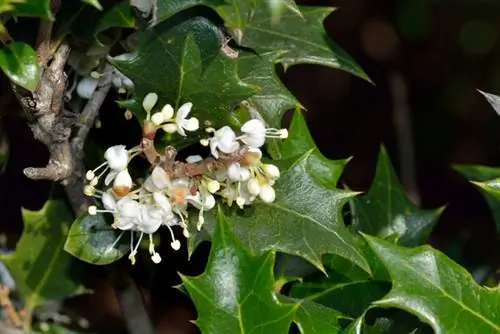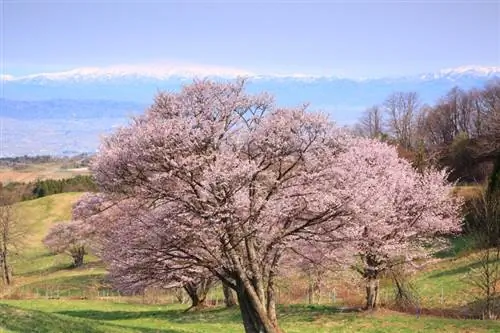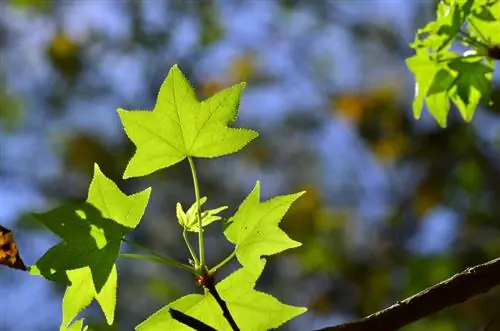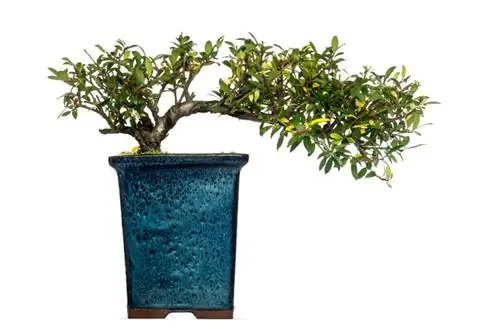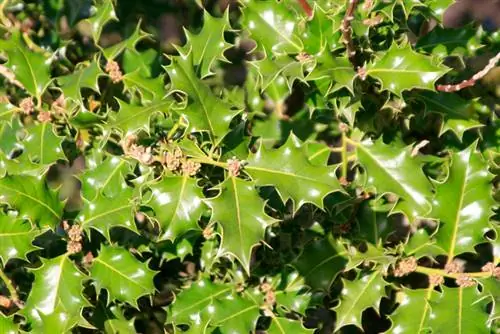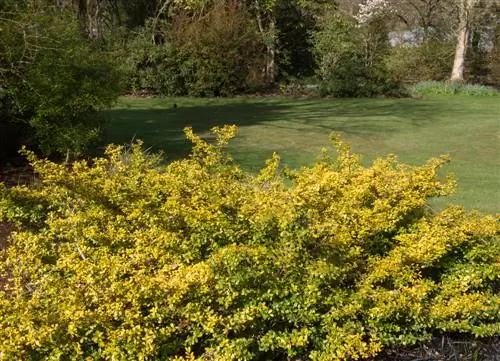- Author admin [email protected].
- Public 2023-12-16 16:46.
- Last modified 2025-01-23 11:20.
The Japanese holly belongs to the same plant genus as the European holly, but differs significantly from it. Visually it is more similar to the local boxwood, which is often planted as a hedge, and is also used in a similar way.
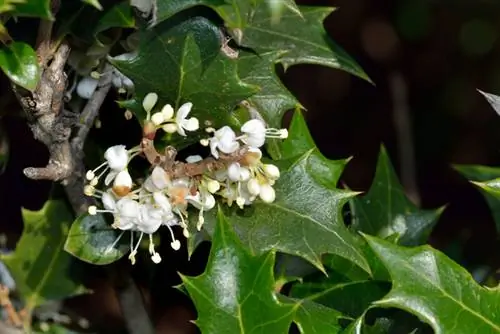
How do I properly care for a Japanese holly?
A sunny, wind-protected location is ideal for caring for the Japanese holly. It prefers slightly acidic soil and requires regular watering and fertilization in summer. The plant is only partially hardy and should be protected from frost.
Planting Japanese holly
The Japanese holly tolerates partial shade, but grows much more densely in the sun. She also likes to be protected from the wind. The Japanese holly prefers the soil to be slightly acidic rather than alkaline. It can also be slightly moist.
The Japanese holly is only partially hardy and should be well protected from frost in winter, for example with a thick layer of leaves and/or brushwood. In autumn, black berries develop from the pale white flowers. Unfortunately these berries are poisonous.
Water and fertilize the Japanese holly
The Japanese holly needs plenty of water because it has very sensitive roots that are easily damaged in dry conditions. It tolerates rainwater best as it contains no lime. If you don't have rainwater available for watering, let the tap water stand a little.
Fertilize your Japanese holly approximately every three to four weeks in the summer months with a commercially available liquid fertilizer (€9.00 at Amazon). In winter and during flowering, the Japanese holly does not need fertilizer.
Propagate Japanese holly
The Japanese holly can be propagated by seeds or with the help of cuttings. However, sowing is a rather lengthy process. Cutting cuttings is therefore recommended for impatient gardeners. July or August, when the plant is still in full sap, is a good time for this type of propagation. By the way, you can also grow the Japanese holly as a bonsai.
The most important things in brief:
- growing slowly
- needs rather acidic soil
- prefers a sunny and wind-protected location
- water regularly
- fertilize regularly in summer
- only conditionally hardy
- Propagation by cuttings or seeds
- Berries are poisonous!
Tip
The Japanese holly is an excellent hedge plant and can be easily planted in place of boxwood that is affected by the box tree borer.

